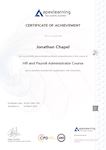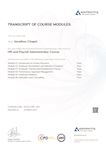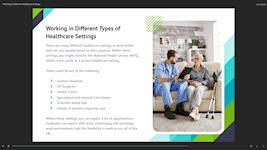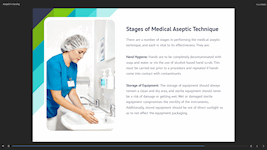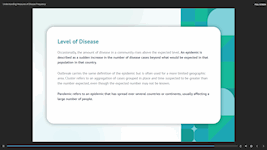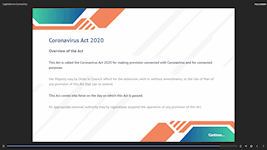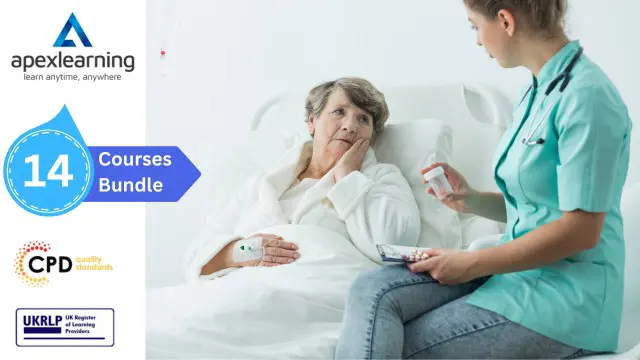
Nursing Assistant (Nurse Prescribing, Phlebotomy, Medication)
Summer Sale Now On | 14-in-1 Bundle| CPD Certified| 140 CPD Points| Gifts: Hardcopy + PDF Certificate + SID - Worth £180
Apex Learning
Summary
- Certificate of completion - Free
- Exam(s) / assessment(s) is included in price
- Tutor is available to students
Add to basket or enquire
Overview
Tired of browsing and searching for a Nursing Assistant (Nurse Prescribing, Phlebotomy, Medication) course you are looking for? Can't find the complete package that fulfils all your needs? Then don't worry as you have just found the solution. Take a minute and look through this extensive bundle that has everything you need to succeed.
After surveying thousands of learners just like you and considering their valuable feedback, this all-in-one Nursing Assistant (Nurse Prescribing, Phlebotomy, Medication) bundle has been designed by industry experts. We prioritised what learners were looking for in a complete package and developed this in-demand Nursing Assistant (Nurse Prescribing, Phlebotomy, Medication) course that will enhance your skills and prepare you for the competitive job market.
Also, our experts are available for answering your queries on Nursing Assistant (Nurse Prescribing, Phlebotomy, Medication) and help you along your learning journey. Advanced audio-visual learning modules of these Nursing Assistant (Nurse Prescribing, Phlebotomy, Medication) courses are broken down into little chunks so that you can learn at your own pace without being overwhelmed by too much material at once.
Furthermore, to help you showcase your expertise in Nursing Assistant (Nurse Prescribing, Phlebotomy, Medication), we have prepared a special gift of 1 hardcopy certificate and 1 PDF certificate for the title course completely free of cost. These certificates will enhance your credibility and encourage possible employers to pick you over the rest.
This Nursing Assistant (Nurse Prescribing, Phlebotomy, Medication) Bundle Consists of the following Premium courses:
- ⇒ Course 01: Level 3 Diploma in Nursing Assistant Complete Training
- ⇒ Course 02: Public Health
- ⇒ Course 03: Medical Law
- ⇒ Course 04: Nurse Prescribing Diploma
- ⇒ Course 05: Phlebotomy
- ⇒ Course 06: Clinical Training for Nurses and Carers – Catheterisation
- ⇒ Course 07: Medication Administration Level 4
- ⇒ Course 08: GDPR in Healthcare
- ⇒ Course 09: Cardiac (Heart) Care
- ⇒ Course 10: Diabetes Care Diploma
- ⇒ Course 11: Wound Care Level 2
- ⇒ Course 12: Understanding Autism Awareness and Diagnosis Level 2
- ⇒ Course 13: Nutrition and Diet Awareness
- ⇒ Course 14: First Aid Training
Enrol now in Nursing Assistant (Nurse Prescribing, Phlebotomy, Medication) to advance your career, and use the premium study materials from Apex Learning.
How will I get my Certificate?
After successfully completing the Nursing Assistant course, you will be able to order your CPD Accredited Certificates (PDF + Hard Copy) as proof of your achievement.
- ➽ PDF Certificate: Free (For The Title Course)
- ➽ Hard Copy Certificate: Free (For The Title Course)
CPD
Course media
Description
The bundle incorporates basic to advanced level skills to shed some light on your way and boost your career. Hence, you can strengthen your Nursing Assistant (Nurse Prescribing, Phlebotomy, Medication) expertise and essential knowledge, which will assist you in reaching your goal.
Curriculum of Nursing Assistant Bundle
⇒ Course 01: Level 3 Diploma in Nursing Assistant Complete Training
- Module 1: Introduction to PA – Personal Assistant Diploma
- Module 2: Working in Different Healthcare Settings
- Module 3: Legal, Standards and Professional Aspects of Ethical Practice: Part – 1
- Module 4: Legal, Standards and Professional Aspects of Ethical Practice: Part – 2
- Module 5: Effective Communication in Nursing
- Module 6: Health and Safety in Nursing
- Module 7: Hygiene in Nursing
- Module 8: Infection Control
- Module 9: Asepsis in Nursing
- Module 10: Medication Administration in Nursing
- Module 11: Understanding the Immune System in Nursing
- Module 12: Rest and Sleep Management in Nursing
- Module 13: Mobility and Immobility Issues of Patients in Nursing
- Module 14: Pain Management for Nurses
- Module 15: Nutrition in Nursing
- Module 16: Fluid and Electrolyte Balance
- Module 17: Assisting with Elimination
- Module 18: Oxygenation in Nursing
⇒ Course 02: Public Health
- Module 01: Introduction to Public Health
- Module 02: Principles of Public Health
- Module 03: Understanding Epidemiology
- Module 04: Disease Control
- Module 05: Understanding Measures of Disease Frequency
- Module 06: Maternity and Childbirth
- Module 07: Environment and Public Health
- Module 08: Health System and Policy
- Module 09: Public Health and Ethics
⇒ Course 03: Medical Law
- Module 01- An Introduction to Medical Law
- Module 02- Legislation on Access to Health, Medical Report, Treatment
- Module 03- Legislation on Adult Support
- Module 04- Legislation on Public Health and Health Service (Part 1)
- Module 05- Legislation on Public Health and Health Service (Part 2)
- Module 06- Legislation on Public Health and Health Service (Part 3)
- Module 07- Legislation on Public Health and Health Service (Part 4)
- Module 08- Legislation on Coronavirus
- Module 09- Legislation on Mental Health (Part 1)
- Module 10- Legislation on Mental Health (Part 2)
- Module 11- Legislation on Abortion
- Module 12- Other Legislation (Part 1)
- Module 13- Other Legislation (Part 2)
⇒ Course 04: Nurse Prescribing Diploma
- Module 1: Introduction to Nurse Prescribing
- Module 2: Legal and Ethical Aspects of Prescribin
- Module 3: Medicine Management
- Module 4: Anxiety Disorders in Adults
- Module 5: Liver Diseases: Diagnosis & Prescribing
- Module 6: Common Problems: Pharmacological Management
- Module 7: Anti-Microbial Prescribing
- Module 8: Cardiac Problems and Prescribing
- Module 9: Neurological Problems and Prescribing
- Module 10: Palliative Cares
- Module 11: Prescribing in Pregnancy and Lactation
- Module 12: Prescribing for Older People
- Module 13: Prescribing Children’s
- Module 14: Common Medicines in Use
- Module 15: Challenges and Future of Nurse Prescribing
⇒ Course 05: Phlebotomy
- Module 01: Introduction to Phlebotomy
- Module 02: Blood Circulation, Function, and Composition
- Module 03: Phlebotomy Equipment
- Module 04: Routine Venipuncture
- Module 05: Venipuncture Complications and Pre-Examination Variables
- Module 06: Dermal Puncture
- Module 07: Quality Assessment and Management in Phlebotomy
- Module 08: Special Blood Collection Procedure
- Module 09: Infection Control and Risk Management
⇒ Course 06: Clinical Training for Nurses and Carers – Catheterisation
- Module 1: Introduction to Urinary Catheterisation
- Module 2: The Urinary System
- Module 3: Patients’ Guide for Catheterisation
- Module 4: Guidance for Nursing and Care Staff
- Module 5: Protocol for Female Catheterisation
- Module 6: Protocol for Male Catheterisation
- Module 7: Protocol for Handling Catheter & Catheter Bags
⇒ Course 07: Medication Administration Level 4
- Module 01: Introduction to Safe Handling of Medicines
- Module 02: Legislation and guidance of medication management
- Module 03: Principles of Safe and Appropriate Handling of Medicines
- Module 04: Medication Risk Assessment Guidance
- Module 05: Handling Medicines in Social Care Settings
- Module 06: Consent to Treatment
- Module 07: Requirements for Specific Services
- Module 08: Levels of Care and Support
- Module 09: Procedure for Handling Medication
- Module 10: The Six Rights of Medication Administration
- Module 11: Covert Administration of Medication
- Module 12: Recording Procedures
- Module 13: Storage of Medication
- Module 14: Transfer and Disposal of Medication
- Module 15: Drug Formulation and Ways of Taking It
⇒ Course 08: GDPR in Healthcare
- Module 01: Introduction to GDPR
- Module 02: GDPR and Healthcare Setting
- Module 03: General Data Protection Regulations Explained
- Module 04: Lawful Basis for Preparation
- Module 05: Responsibilities and Obligations
- Module 06: Electronic Medical Records
- Module 07: Rights and Breaches
⇒ Course 09: Cardiac (Heart) Care
- Introduction & First Concepts
- What is A Heart Attack & Complications
- Emergency Care For A Heart Attack
- Risk Factors & Lifestyle Choices
- Heart Remedies
- Final Tips & Suggestions
⇒ Course 10: Diabetes Care Diploma
- Module 01: What is Diabetes
- Module 02: The Diabetes Challenge
- Module 03: The Cost of Diabetes in Social Care
- Module 04: Type 1 Diabetes
- Module 05: Type 2 Diabetes
- Module 06: Type 2 Diabetes Treatments
- Module 07: Prediabetes
- Module 08: Gestational Diabetes
- Module 09: Other Types of Diabetes
- Module 10: Hypoglycaemia
- Module 11: Hyperglycaemia and Hyperosmolar Hyperglycaemic State
- Module 12: Glossary of Diabetes Terms
⇒ Course 11: Wound Care Level 2
- Module 01: The Wound Healing Process & Factors Delaying Wound Healing
- Module 02: Types of Wounds and Their Treatment
- Module 03: Dressing
- Module 04: Wound Assessment
- Module 05: Glossary
⇒ Course 12: Understanding Autism Awareness and Diagnosis Level 2
- Module 1: Autism Spectrum Disorder (ASD)
- Module 2: Learning Difficulties Related to Autism
- Module 3. Autism Diagnosis
- Module 4. Cognitive Approaches in Autism
- Module 5. Dealing with Autistic Individuals
- Module 6. Other Considerations for Dealing with Autistic Individuals
- Module 7. Engagement in Autism Awareness
⇒ Course 13: Nutrition and Diet Awareness
- Nutrition and Diet Awareness
- Overview
- Nutritional Details
- What to Avoid & Problem Areas
- Beyond Food
- Putting It All Together
⇒ Course 14: First Aid Training
- Introduction to Workplace First Aid
- Legal Framework for Workplace First Aid
- Incident Management at Work
- Primary Survey
- Secondary Survey
- Basic First-Aid Techniques
- Dealing with Minor Injuries at the Workplace
- Secondary Illness Loss of Responsiveness and CPR
- Secondary Illness Breathing Problems
- Secondary Illnesses and Injuries
- Dealing With Fractures and Dislocations
- Call for an Emergency
Who is this course for?
Anyone from any background can enrol in this Nursing Assistant (Nurse Prescribing, Phlebotomy, Medication) bundle.
Please note: This course doesn’t entitle you to practice as a professional in this specific field. Rather, this course will assist you in understanding the fundamentals so that you can improve your knowledge in the relevant field.
Requirements
Our Nursing Assistant (Nurse Prescribing, Phlebotomy, Medication) course is fully compatible with PCs, Macs, laptops, tablets and Smartphone devices.
Career path
Having this Nursing Assistant (Nurse Prescribing, Phlebotomy, Medication) expertise will increase the value of your CV and open you up to multiple job sectors.
Questions and answers
Currently there are no Q&As for this course. Be the first to ask a question.
Certificates
Certificate of completion
Digital certificate - Included
Reviews
Currently there are no reviews for this course. Be the first to leave a review.
Legal information
This course is advertised on reed.co.uk by the Course Provider, whose terms and conditions apply. Purchases are made directly from the Course Provider, and as such, content and materials are supplied by the Course Provider directly. Reed is acting as agent and not reseller in relation to this course. Reed's only responsibility is to facilitate your payment for the course. It is your responsibility to review and agree to the Course Provider's terms and conditions and satisfy yourself as to the suitability of the course you intend to purchase. Reed will not have any responsibility for the content of the course and/or associated materials.



